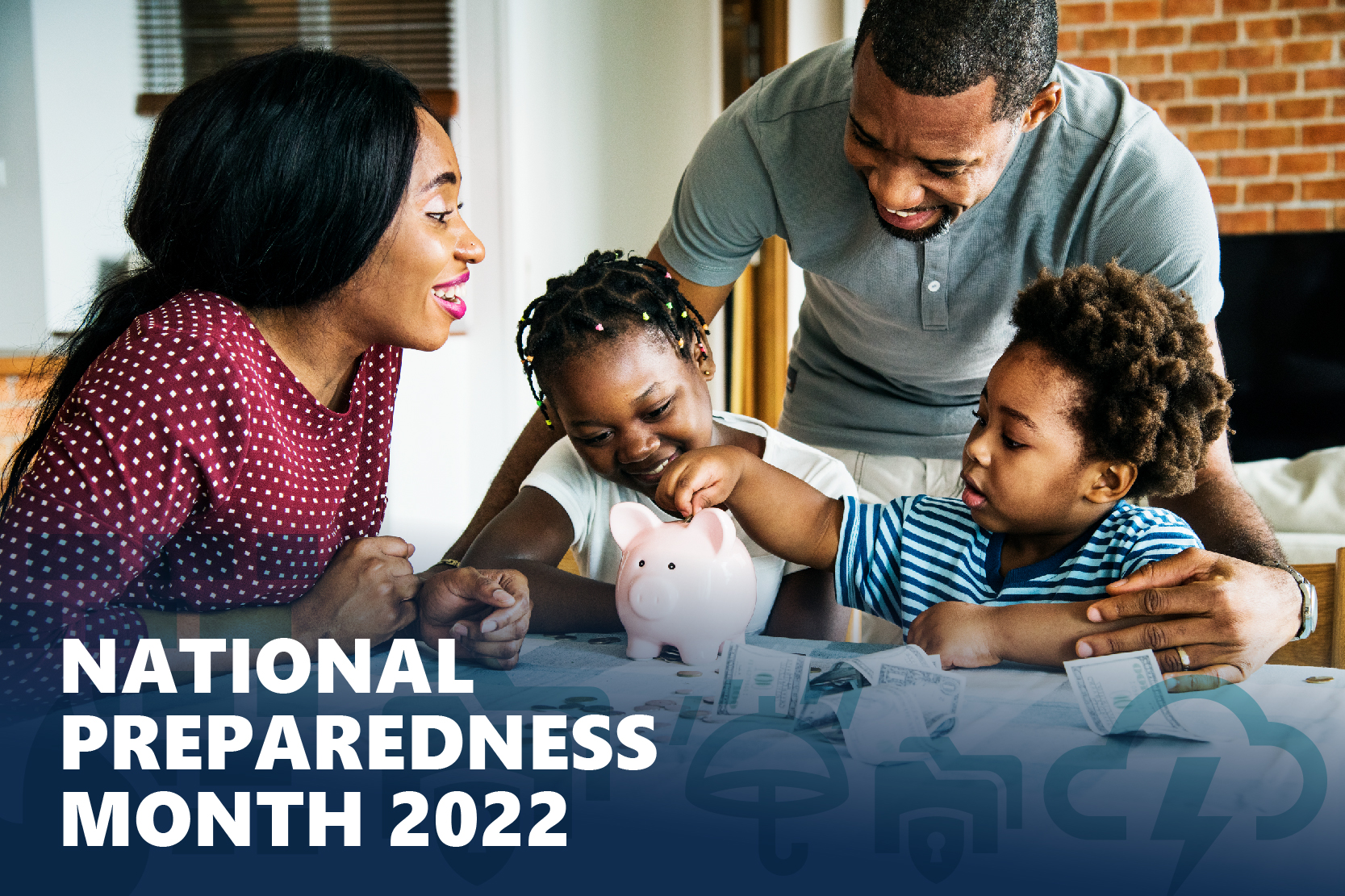Financial Preparedness
Disaster preparedness is key for mitigating damage and reducing recovery time following a disaster.
Understanding that disasters can be costly, a critical aspect of your household’s readiness is financial preparedness. Making sure that you are financially prepared could make a huge difference in your recovery process. There are several steps you can take to help boost your financial preparedness. Below are some Team IEM recommendations to help you plan ahead.

Financial Preparedness Tips
- Gather and review important documents. Collect all important household documentation that would be used for disaster assistance, identification, and/or insurance purposes. If possible, invest in a water- and/or fireproof document container to store the documents to ensure they are properly protected from hazards.
- Identification documents: Items like birth certificates, passports, and IDs should be gathered for everyone in the household and stored together.
- Contact information: Keep a record of all important contact information for everyone in your household, including employer contact information, if applicable. Also include emergency contacts who should be contacted on your behalf in case of an emergency.
- Financial and legal documentation: Gather all documentation pertaining to housing payments (mortgage or rent), household and personal bills, insurance policies, financial accounts, tax statements, and any other financial obligations.
- Medical documentation: Compile all medical information including physician contacts, prescriptions, health insurance coverage, immunizations, allergies, medical equipment, and anything else that pertains to your household’s specific needs.
- Review or obtain insurance. If you have insurance policies (e.g., homeowner’s/renter’s, flood, health, life) in place, review your coverage. If you do not have coverage, evaluate what policies would be most beneficial for you and how to obtain them.
- Document your possessions. Keep an account of all of your valuable possessions, including up-to-date photos. If your home sustains damage during a disaster, you may be able to use this documentation later for insurance or disaster assistance purposes.
- Keep some cash handy. In the case that ATMs or other digital financial services are out of order, keep a store of cash (in the same hazard-proof container as your important documents) to pay for any purchases until normal means are available again.
- Create a savings. Create a budget to regularly set aside money to establish an emergency savings fund you can fall back on when an emergency happens. Your regular income might not be reliable or available in times of emergency. Having a backup savings, no matter how much, will help.
- Update your information and documents regularly. Don’t be caught off guard in an emergency with out-of-date documentation or contact information. Regularly check your documents and replace/update any outdated documents or information.
- Beware of scams. Don’t share your personal information with any sources that you cannot verify as safe and legitimate. Use this guide to help you avoid scams and fraud after a disaster.
- Use the Emergency Financial First Aid Kit. The FEMA EFFAK provides tips, checklists, and resources to help you track your financial preparedness. Download and fill out the document, keeping both physical and digital copies in your records.
Low- and No-Cost Preparedness Tips
Another way to financially prepare is using low-and no-cost tactics that may help lower your overall recovery costs. Certain aspects of disaster preparedness are relatively low in cost and can make a difference in helping you to prepare yourself, your home, and your loved ones. Below are some low- and no-cost tips to help you get started.
- Know your threat. Making sure you are aware of what hazards you may face will help you properly prepare and assess potential risk.
- Sign up for emergency alerts and stay informed. Find out which state and/or local sources in your area will send out emergency and severe weather alerts and sign up for them. Encourage the rest of your household to sign up for emergency alerts as well. Download the FEMA app for weather alerts, safety tips, reminders, and more.
- Create an Emergency Plan. Taking into account the specific needs of your household members and pets, create an emergency plan that includes evacuation routes and locations, important contact information, and anything else that you may need in an emergency. Practice your plan and make sure everyone in the household is familiar with it.
- Keep an updated communications plan. Your family may not all be in the same location or may get separated during a disaster. Make sure everyone in the household knows how to communicate with each other by using this communications plan guide.
- Build an emergency kit. Building an emergency kit with enough supplies to sustain your household for several days can be expensive; however, if you build it up over time by buying an extra item or two with different shopping trips or when on sale, it helps to spread out the cost and may make it more manageable. Use this emergency supply list as a guide to help you create your kit.
- Pack an emergency evacuation bag. If an order to evacuate is called, get out the door as fast as possible by having an evacuation bag ready and packed ahead of time. Include anything you might need for yourself and your family/pets (e.g., important documents, clothing, medications, medical devices). Identifying family or friends in advance who are outside of your evacuation zone will keep you safe, comfortable, and avoid costs associated with evacuating to a hotel at the last minute.
Disasters and other emergencies affect our homes, families, mental wellbeing, and financial security. Making sure to prepare ahead of time for any possible threats could help alleviate the physical damage, financial stress, and recovery time.
As National Preparedness Month comes to a close, remember that disaster preparedness is year-round. Protect the life you’ve built for yourself and for your loved ones. Take preparedness steps today to help create a lasting legacy.




